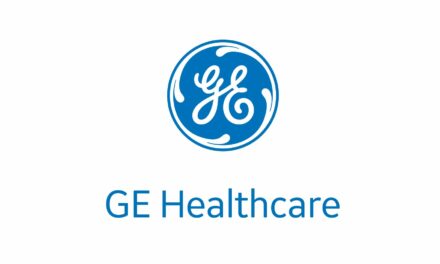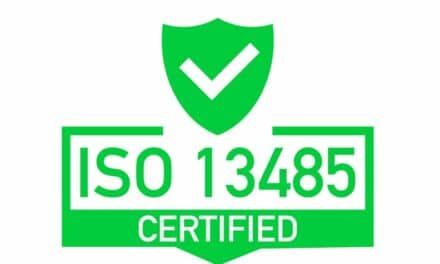The market for oncology and linear accelerator parts and service has two sides. The domestic market is a mature market that is facing cuts in reimbursement, which challenges budgets. The international market is smaller but growing quickly. Oncology Services International (OSI) president Rick Hall thinks his company can rise to the top of both.
OSI, Montebello, NY, is already the largest organization of its kind in the United States. But Hall says confidently that it has barely “scratched the surface” of its potential. Not even 1 year into the position, Hall is positioning his company for growth. 24×7 spoke to him to discover why he is so optimistic about the future and how he plans to get the company there.
24×7: What is OSI’s history?
Hall: Oncology Services International was founded in 1985. It grew over the next couple of decades through organic growth and a series of small acquisitions. Today, we’re the largest independent service organization for linear accelerators and radiation therapy in the world.
24×7: What value do you provide to customers?
Hall: Providers of radiation therapy are continuing to experience significant pressure on reimbursement. As that occurs, they are constantly concerned with reducing operating cost while maintaining quality care. OSI offers a compelling value proposition to help them accomplish both. On the field side, we have highly trained engineers and a deep experience base on virtually all OEM devices at a significantly reduced price. We also provide certified used equipment at a fraction of the cost of new equipment, and we have an extensive parts division.
 |
A Quick Take 24×7: You are fairly new to OSI. What is your background in the field? Hall: I joined OSI last June. I’ve been in health care services for more than 30 years. My most recent position was as president of Alliance Oncology. Alliance operates 37 radiation therapy centers—we were actually an OSI customer. What excited me about the opportunity were OSI’s growth opportunities, despite its large size relative to others. I like to build teams and execute strategies. |
24×7: What is your service area?
Hall: The bulk of our business is in the United States, but we’re also an international company. We have partnerships in China and have done business around the globe, with emphasis in South America, Mexico, and Eastern Europe. The strength of our geographic coverage in the United States is east of Mississippi as well as in California.
24×7: What are your differentiators?
Hall: Our differentiators are expertise, breadth of capabilities, guaranteed uptime of 99%, an extremely high level of customer service, and cost.
24×7: What factors have led you to believe there is room to grow?
Hall: When you look at the size of the company today, we have only scratched the service. We service about 350 units in the United States. There are well over 2,500 linear accelerators in the country. There’s a tremendous upside to provide service as well as equipment. Internationally, the potential is tremendous. You need about one linear accelerator for every million people. In the United States, we have around 6.7 per million. In many other countries, they have less than one.
The other part of growth strategy is acquisition. Our strategy is primarily focused on attracting new customers. But this industry is pretty fragmented. There are many smaller entities. We believe that over time, we can attract them to merge to become a much bigger player.
24×7: How will your growth internationally compare to your growth in the United States?
Hall: In the area of service, the United States holds the greatest opportunity for service. We already have deployed engineers, and we will continue to grow this service organization. As it relates to our equipment and parts business, the international market holds even more potential than the domestic market. The domestic market is essentially a mature replacement market.
24×7: What do you need to provide to clients in order to win those new contracts?
Hall: At both Alliance and US Oncology, we operated freestanding cancer centers. At Alliance, we had 37 radiation oncology sites. Every one is a bit different, based on who they serve, the volume treated, and what services they provide. What I found from my experiences with those organizations is that it was very important to size the investment appropriately. In some instances, you couldn’t afford to put in a new multimillion-dollar piece of equipment. In addition, we must become an extension of their clinical mission. We must be their partner in delivering exceptional care at an affordable cost.
The other important thing here is reliability. We have approximately 50 engineers currently. We have a 15-minute response time by phone. Typically, we have an engineer on site within 1 or 2 hours. We also have metrics such as elapse time to fix (ETF) and patient treatments rescheduled (PTR) That’s important, because with radiation therapy, you are treating a disease that is very serious. If patients arrive for treatment and the machine is down, that is a very bad day for them and for the facility.
24×7: What are the biggest challenges OSI will need to overcome to meet your goals?
Hall: One challenge is just helping the customer base—hospitals and freestanding radiation providers— truly understand that an independent service organization (ISO) like ours can provide a very valuable option. We did market research recently, and it indicated that only 16% of the market knows that an ISO is a viable alternative. There’s a significant educational effort that is going to be required.
I think some potential customers don’t even know we exist, or they think their only alternative is the original equipment manufacturer. There’s also a percentage out there who know ISOs exist, but they might not be fully aware that we offer a truly competitive alternative. They might have a misperception that only the OEM can service their machine. They might not understand the breadth and depth of our capabilities.
A second challenge is helping customers understand the quality and cost-capability advantage that a company like OSI has to offer. There’s also a need to continue to attract quality and skilled engineers.
24×7: Last October, your company received ISO 9001:2008 recertification. What is the significance?
Hall: It’s important to know that we are continually enhancing our quality profile. ISO certification gives customers and business partners a standard—we’re following good business practices. One of the things we can offer is documentation around our quality standards and training.
24×7: What is on OSI’s horizon at the moment?
Hall: I think you’ll see a much more aggressive OSI in the market. We just hired a new leader of our service and sales organization, who is also a 30-year veteran of health care services. We are adding three additional salespeople to better articulate our value proposition. We will work on growing our international business. We are also moving to offer computed tomography (CT) servicing in our existing oncology relationships. Customers have asked for it. Every radiation provider has CT. We’ve hired five CT engineers. We’ll expand that business and train our engineers to service CT. 24×7 Industry Insider May 2013
Kurt Woock is the associate editor of 24×7. Contact him at [email protected].




